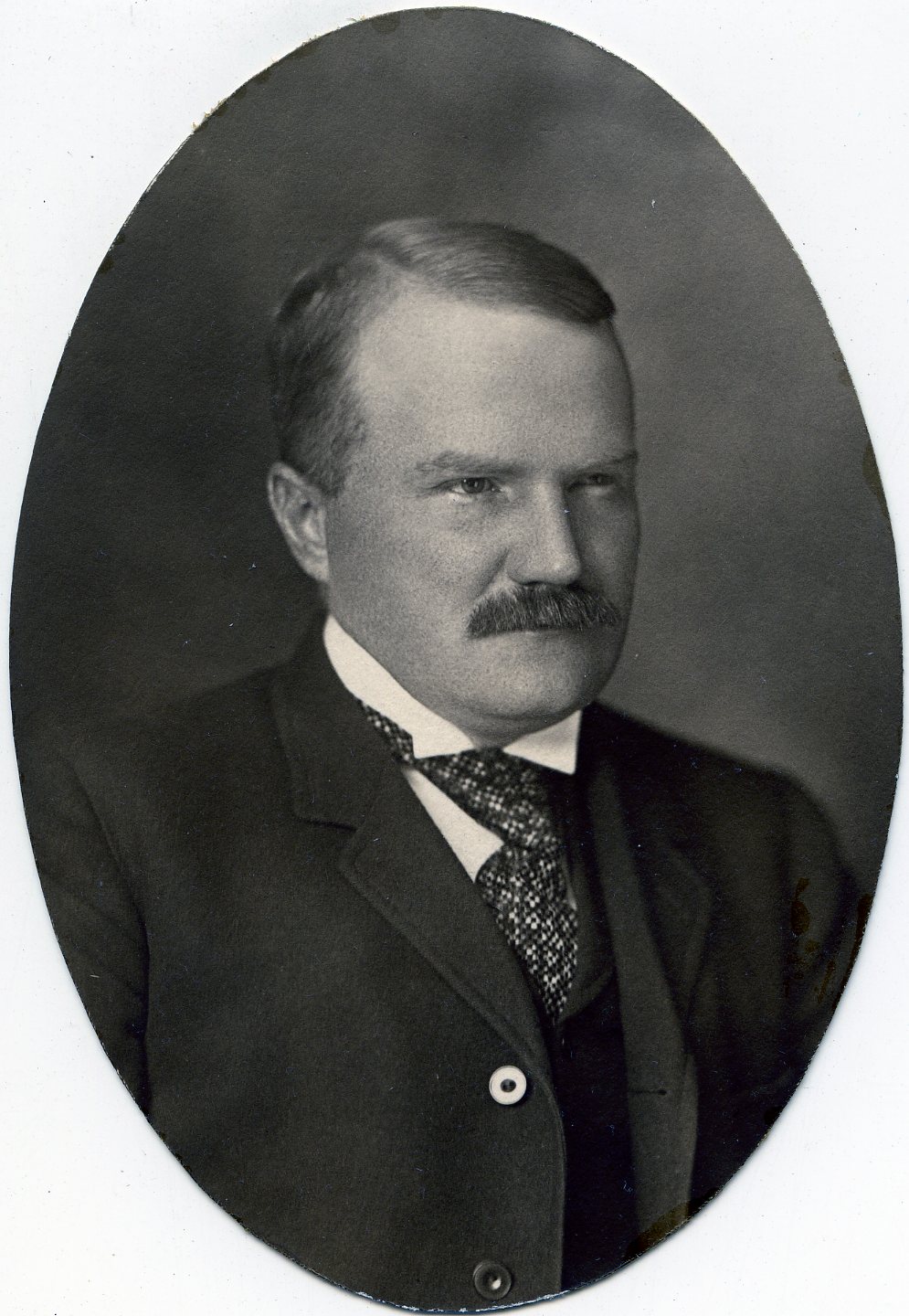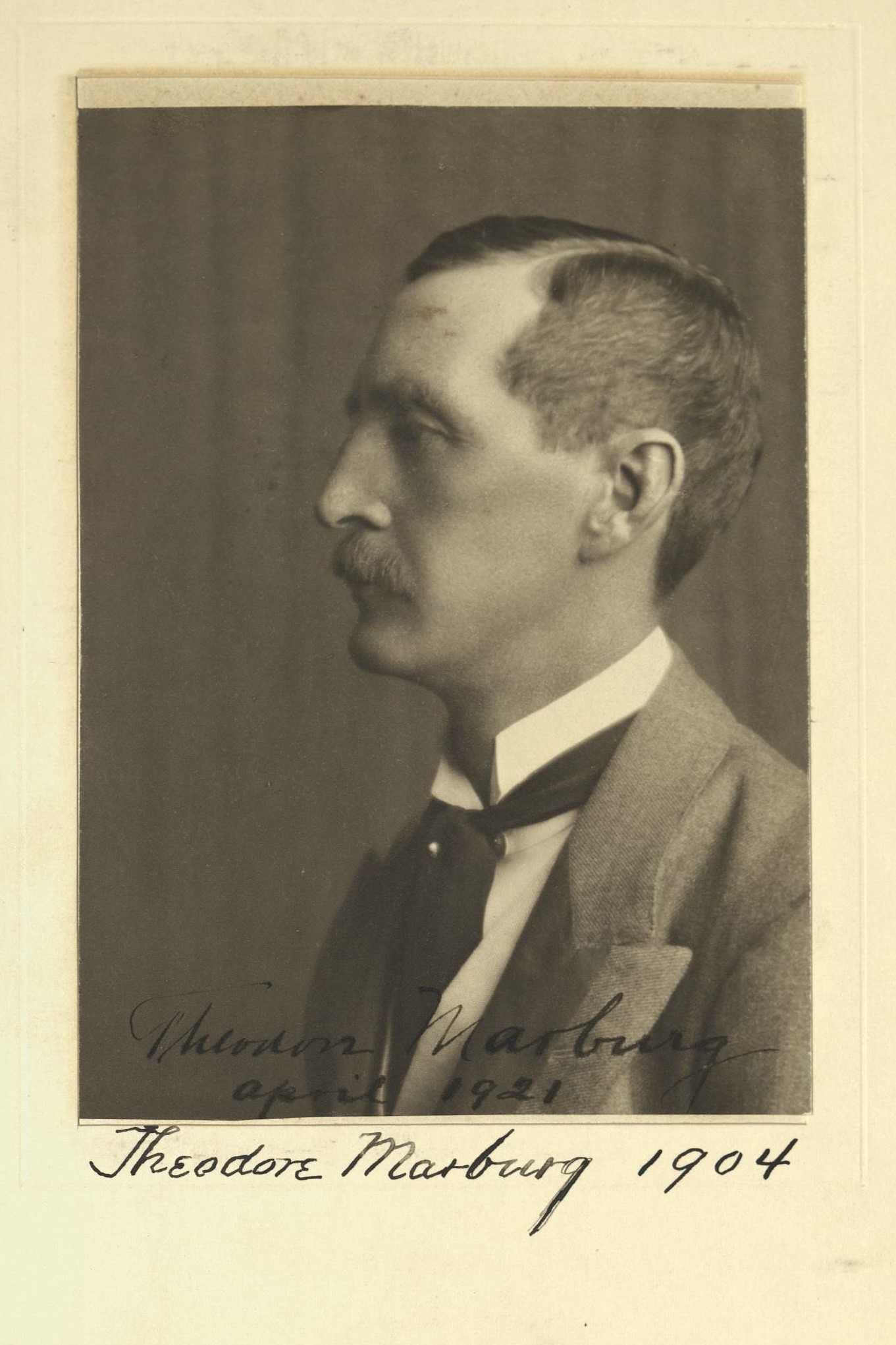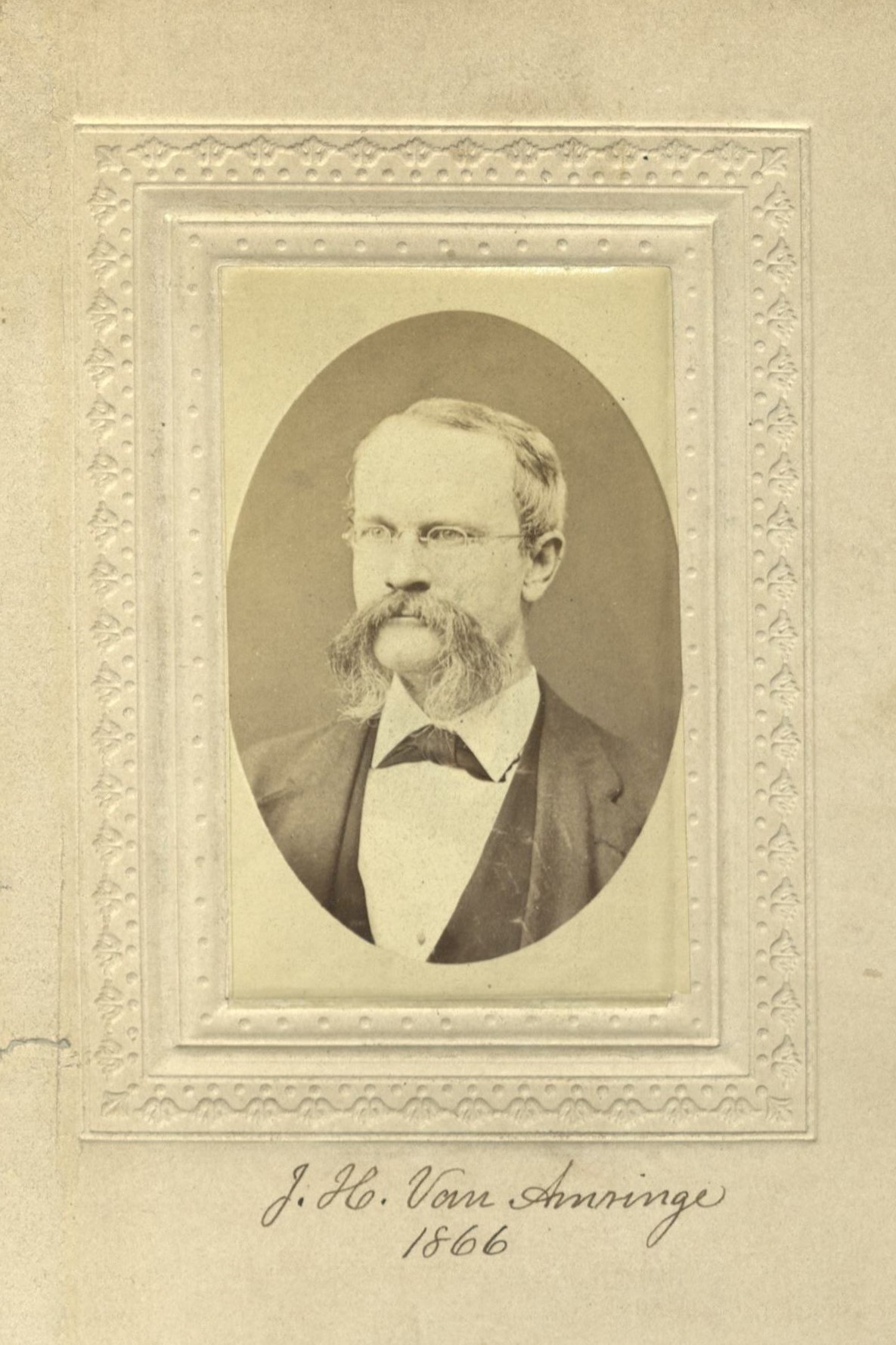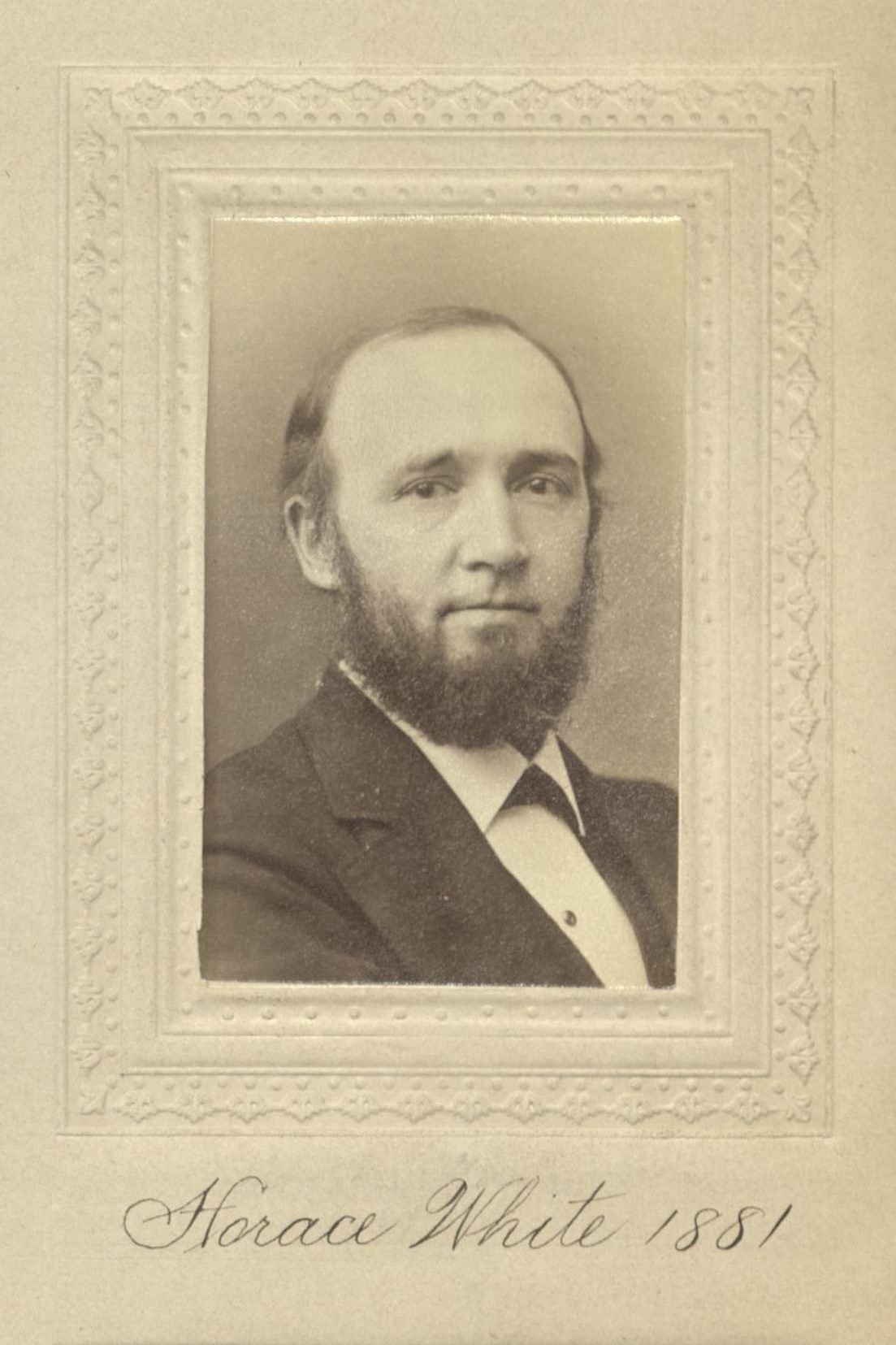Member Directory,
1847 - 1922
William A. Dunning
Professor of History and Political Science
Centurion, 1894–1922
J. Howard Van Amringe, Horace White, and Nicholas Murray Butler
Plainfield, New Jersey
New York (Manhattan), New York
Age thirty-seven
Brooklyn, New York

Century Memorial
Once in a while we get a glimpse, from a single notable career, of how history should be written. There are probably some people who would describe William Archibald Dunning as a historian of the old school. The description would have pleased him. He was an eminently faithful adherent of that fine old school which investigates history with the single purpose of establishing, by evidence patiently gathered from a hundred original sources, the truth regarding controverted episodes. The “History of Political Theories” will perhaps be regarded by the reflecting public as his magnum opus, but even this was not Dunning’s most important contribution to history. The fruits of his study are embodied mainly in the annals of the American Historical Society during three or four decades.
Half a dozen books, mostly collections of previously printed essays and largely concerned with a ten-year episode in American history, make up his formal bibliography. To the present school of “best selling” historians the man who could select for the work of years, as Dunning did, intensive study of a single period in a single country—the setting-right, after tireless search for first-hand evidence, of traditions created by embittered political controversy—must have seemed an eccentric personage. Dunning never found it necessary to lead up to the Reconstruction period by describing the creation of the planetary system. He did not challenge popular versions of an episode on the basis of assertion without proof, or of patronizing comment on the older historians who could not have known the truth because they wrote before the social propaganda of 1922. He did not even compress his information into the language of the nursery, so as to “syndicate” history in the daily newspapers along with Percy and Ferdy and Bed-time Stories.
The larger work which Dunning did was to provide the material which other historians could safely and confidently use, either in books of their own or in college instruction of their own, whereby a host of interested students might be brought to see celebrated episodes in the true perspective. His larger personal impress on historical science and historical investigation was made through his talks to his classes at Columbia, from which went out some of the most useful and distinguished of our younger writers on American politics. Through them he may be said to have accomplished the unusual achievement of reversing the verdict of history on the Reconstruction period.
Perhaps Dunning’s most remarkable exploit—certainly the one which he was fondest of recalling—was his rehabilitation of the character and political ideals of that not altogether prepossessing personage, Andrew Johnson, thirty years after the acrimonious struggle in which the party dominant at the close of the Civil War turned on its own executive and, unable to drive him out of office by framed-up impeachment charges, had to content itself with creating for him a carefully-instilled tradition of personal vulgarity, incompetence and ignorance. Dunning did not stop with conclusive proof of the extent to which Johnson’s plan of reconstruction marked the statesman while the plans of [Thaddeus] Stevens and [Charlers] Sumner and [Zachariah] Chandler marked the demagogue or fanatic. Addressing his energies to solving an unanswered political enigma of that day—how Johnson could have written his dignified and powerful first message when his later documents were disfigured by vehemence and iteration and, if he did not write it, then what member of his cabinet did—Dunning applied himself to the whole original material in the Library of Congress.
He found no such preliminary notes or memoranda for this message as existed for all the others. But he discovered an unsigned note to Johnson, stating the writer’s wish to make his own copy and revision of an unexplained personal communication, and in another place he found a manuscript copy of the Presidential message; neither being in Johnson’s hand, neither in that of a cabinet minister, but both in the same handwriting. From this concatenation of prima facie evidence our historical Sherlock Holmes, hunting down and comparing other manuscripts, at last established beyond dispute the fact that the author of the presidential message of 1865 was the historian George Bancroft. This exceedingly interesting achievement of historical research was characteristic; it was given to the public characteristically. It was not advertised to an expectant newspaper audience. It was quietly embodied in a paper read by Dunning in 1905 at the routine proceedings of the Massachusetts Historical Society.
With all this high professional accomplishment, Dunning the man was a good deal more to the Century than Dunning the historian. It is not to printed books that his club associates will go to recall the unaffected and lovable personality, the loyal friendship, the play of an active mind and inexhaustible memory on the whole field of political and social problems, but to the memory of an intimately familiar figure in the Club’s every-day life. To no one was the welcome heartier at the dinner table, or at a monthly meeting, or in the Board of Management. The good-humored, quizzical smile with which he used to greet fellow-members whom he met as he strolled into the Club; the pungent, epigrammatic, humorous turn which he was sure to give, with his meditative drawl, to conversation in the Graham Library; the broad and kindly tolerance with which he discussed men and affairs, yet with the strongest note of indignation for anything mean or false—it is that which his fellow club-men will remember.
Alexander Dana Noyes
1923 Century Association Yearbook
Related Members
Member Directory Home-
 Charles H. HaskinsProfessorCenturion, 1907–1931
Charles H. HaskinsProfessorCenturion, 1907–1931 -
 Charles D. HazenProfessor of HistoryCenturion, 1913–1941
Charles D. HazenProfessor of HistoryCenturion, 1913–1941 -
 Theodore MarburgDiplomat/Civic AffairsCenturion, 1904–1946
Theodore MarburgDiplomat/Civic AffairsCenturion, 1904–1946 -
 Howard Lee McBainUniversity ProfessorCenturion, 1918–1936
Howard Lee McBainUniversity ProfessorCenturion, 1918–1936 -
 Robert Livingston SchuylerProfessor of HistoryCenturion, 1922–1966
Robert Livingston SchuylerProfessor of HistoryCenturion, 1922–1966 -
 H. Morse StephensProfessorCenturion, 1902–1919
H. Morse StephensProfessorCenturion, 1902–1919 -
 J. Howard Van AmringeMathematicianCenturion, 1866–1915
J. Howard Van AmringeMathematicianCenturion, 1866–1915 -
 Horace WhiteJournalistCenturion, 1881–1916
Horace WhiteJournalistCenturion, 1881–1916




